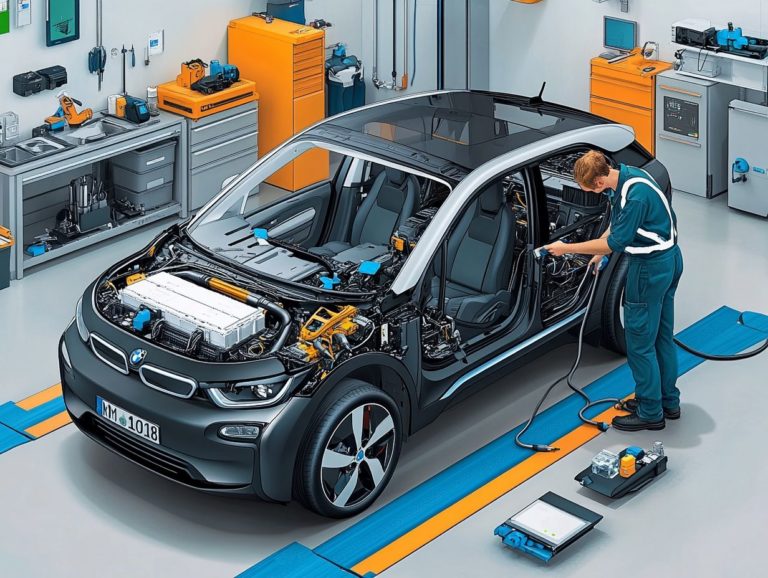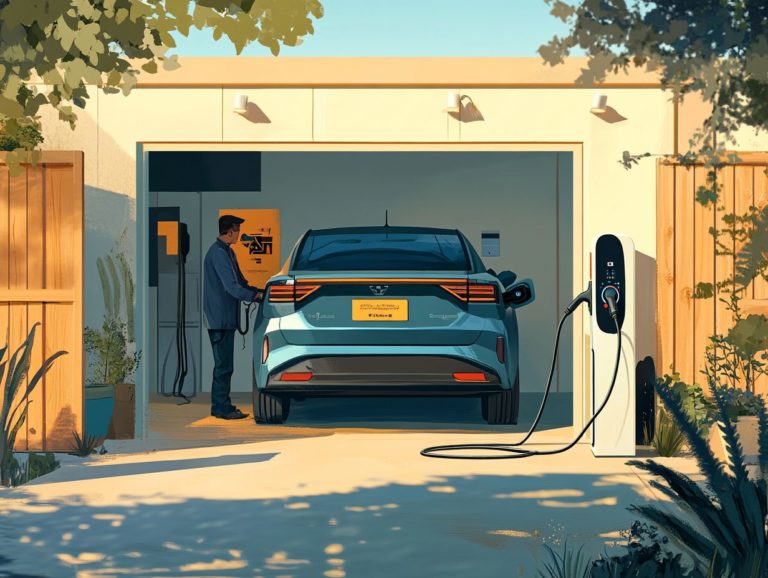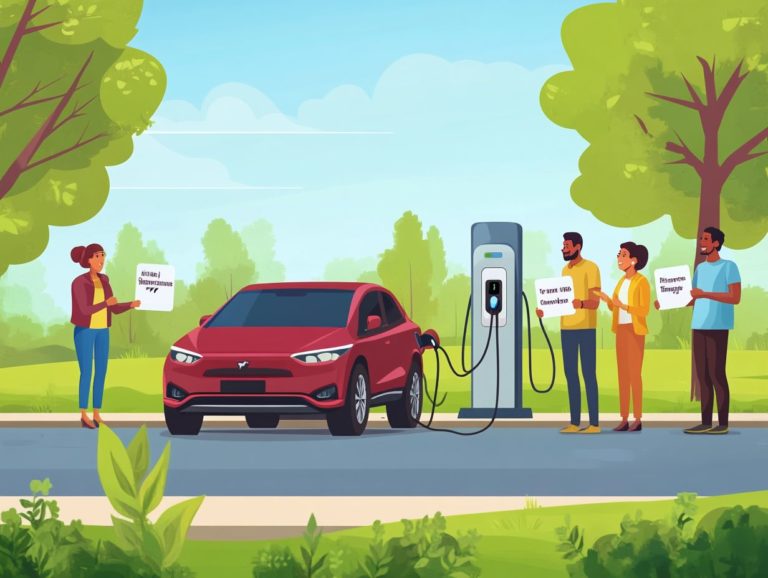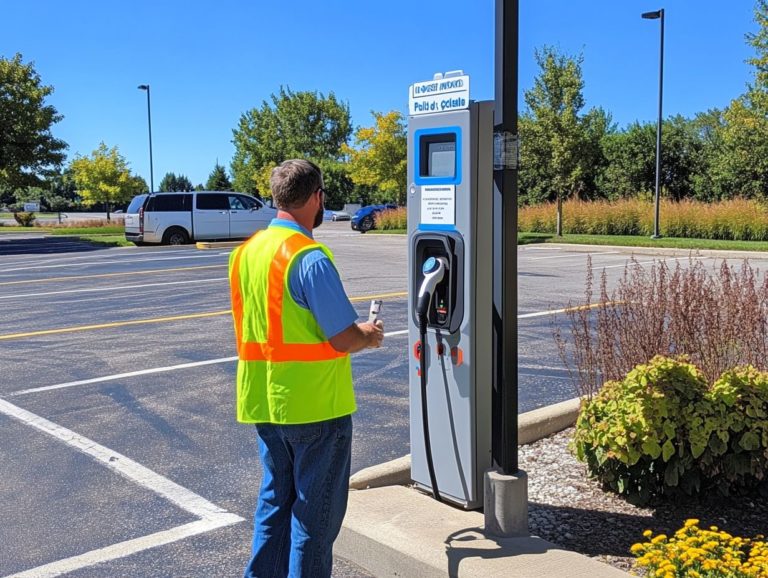what are essential ev maintenance tips?
Maintaining your electric vehicle (EV) is essential for maximizing its longevity and performance. Regular maintenance helps avoid costly repairs and keeps your EV running smoothly.
This guide covers key tasks, including battery management, tire care, and fluid checks. You’ll also learn about extending battery life and whether to handle maintenance yourself or hire a professional.
Let s dive into tips that will keep your EV looking and performing its best!
Contents
Key Takeaways:
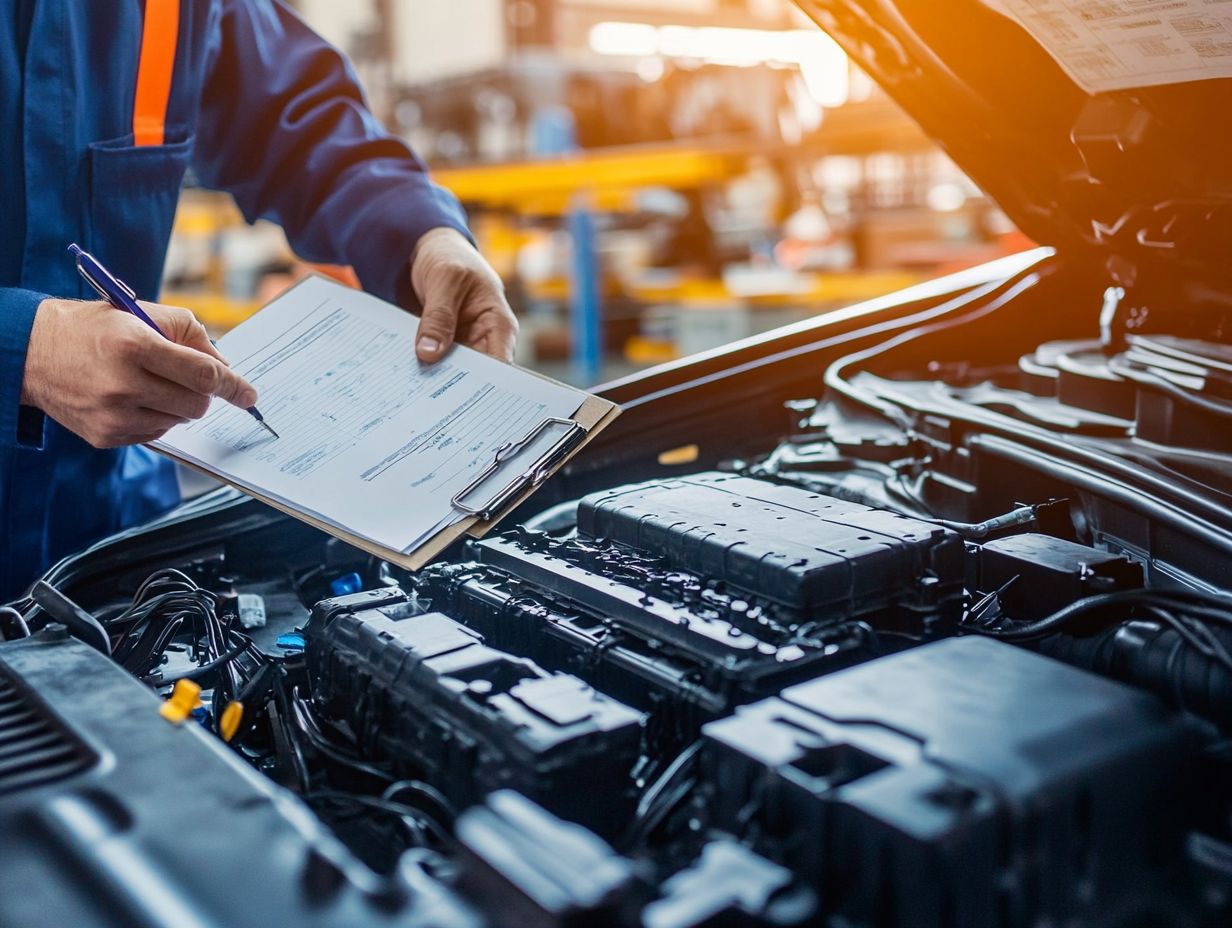
Regular maintenance is crucial for your EV’s performance and longevity. Schedule check-ups and follow the manufacturer’s recommendations.
Focus on battery management, tire care, and fluid checks to prevent neglect.
Think about long-term strategies for battery life and part replacements to keep your EV in top shape.
Decide whether DIY or professional maintenance fits your skills and warranty needs.
Why Maintenance is Important for Electric Vehicles
Maintaining EVs is vital for boosting performance and prolonging critical parts like the battery and electric motor. Proper care lowers your costs and improves your driving experience.
By following a maintenance schedule and responding to alerts, you can prevent wear and tear, keeping your vehicle in peak condition.
Regular Maintenance Tasks
Regular maintenance is essential for EV owners to keep their vehicles reliable. This includes battery care, tire maintenance, software updates, and service intervals tailored for electric vehicles.
By performing these tasks, you can avoid costly repairs and improve your car’s range and performance.
Battery Management and Charging
Effective battery management is key to your EV’s longevity. Use proper care techniques, like optimal charging levels and avoiding extreme temperatures, to improve driving range and efficiency.
Charge during off-peak hours to reduce stress on the battery. A home charging station lets you monitor usage and avoid overcharging.
Keeping your battery at a moderate temperature extends its life and enhances your driving experience.
This careful battery maintenance leads to better regenerative braking, making for smoother accelerations and a more enjoyable ride.
Tire Care and Rotation
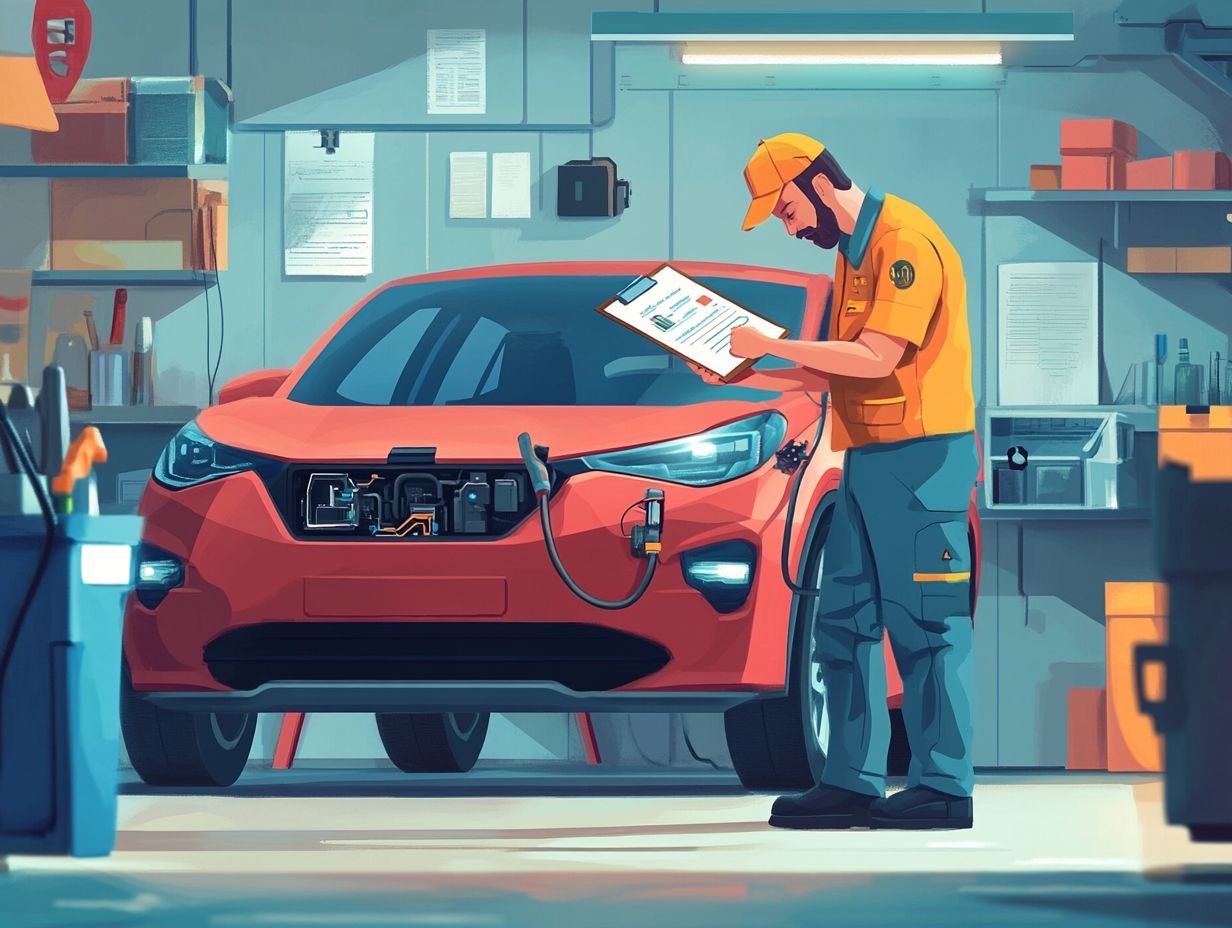
Tire care and rotation are vital for your electric vehicle’s safety and performance. Regular maintenance improves handling and extends tire life, ensuring comfort during your drives.
Rotate your tires every 5,000 to 7,500 miles. Also, maintain proper tire pressure to enhance your vehicle s efficiency and handling.
EVs are heavier due to battery weight, leading to unique tire wear patterns. Pay attention to tread depth to ensure performance and safety.
Stick to scheduled service intervals to maximize tire lifespan and boost energy efficiency. Proper care leads to better grip and improved range.
Fluid Checks and Replacements
Perform fluid checks and replacements regularly to keep your EV s systems running smoothly. This maintenance boosts performance and extends component lifespan.
Brake fluid is crucial for optimal braking, while coolant regulates battery temperatures. Old brake fluid can reduce responsiveness and increase accident risks.
Inspect fluids every six months and fully exchange them annually. This practice ensures your electric vehicle operates safely and efficiently.
Long-Term Maintenance Considerations
As an electric vehicle owner, long-term maintenance is crucial for durability. Focus on extending battery life through proper usage and timely part replacements.
Extending Battery Life
Maintaining your electric vehicle’s battery directly impacts your range and performance. Avoid deep discharges and keep temperature ranges optimal to extend battery longevity.
Establish a charging routine, like topping off before depletion. This practice protects battery health over time.
Monitor surrounding temperatures to avoid excessive heat or cold, which can harm functionality.
Use built-in battery management systems to track performance and catch issues early. These strategies safeguard your battery and enhance driving range.
Replacing Parts and Components
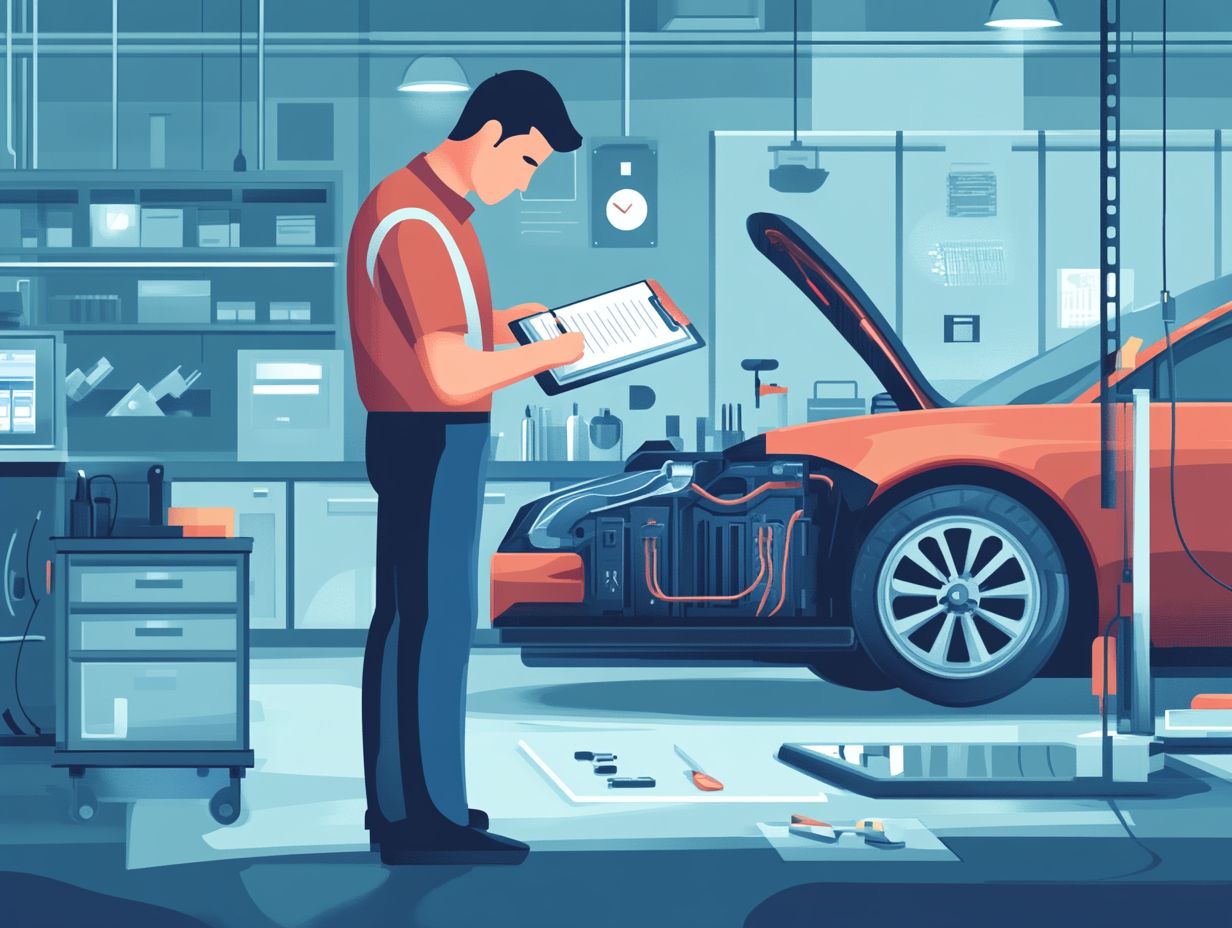
Replacing parts and components in electric vehicles is essential for ensuring long-term maintenance and optimal performance. Key elements, such as the electric motor and battery pack, may need timely replacements to keep your vehicle running efficiently and reliably over time.
These major components also need attention, including the regenerative braking system, coolant pumps, and electronic control units. These can exhibit signs of wear and may require replacement as well.
Typically, a battery pack’s lifespan ranges from 8 to 15 years. Electric motors often last even longer. It’s vital to monitor these components for any unusual noises or performance dips, as these can signal potential issues. Recognizing these signs early can help you avoid more significant problems later on.
For replacement tasks, seeking professional service is crucial. Trained technicians ensure not only the proper installation of parts but also the overall integrity of the electric vehicle system, preserving its performance and safety.
DIY vs Professional Maintenance
In the realm of electric vehicle maintenance, you often find yourself at a crossroads: should you tackle the tasks yourself or enlist the help of professionals? While embracing DIY maintenance can be cost-effective, some tasks, like complex diagnostics, are best left to experts. This keeps you safe and your vehicle performing at its peak!
Pros and Cons of Each Option
Evaluating the pros and cons of DIY maintenance versus professional service is essential for electric vehicle owners. DIY maintenance can be cost-effective and flexible, allowing you to engage directly with your vehicle. However, professional services offer the expertise and confidence needed for handling complicated tasks.
Tackling simple maintenance tasks like tire rotations or fluid checks can lead to significant savings, giving you the power to take charge of your own maintenance schedule. Nevertheless, it’s crucial to acknowledge the specialized knowledge that professional services provide, especially for intricate diagnostics or major repairs.
With their advanced tools and deeper understanding of electric vehicles, professionals can ensure that all critical systems are functioning at their best, ultimately extending your vehicle’s lifespan.
As you weigh these factors, consider your technical skills alongside the specific nature of the maintenance tasks to determine the best approach for your electric vehicle’s needs.
Frequently Asked Questions
What are essential EV maintenance tips?
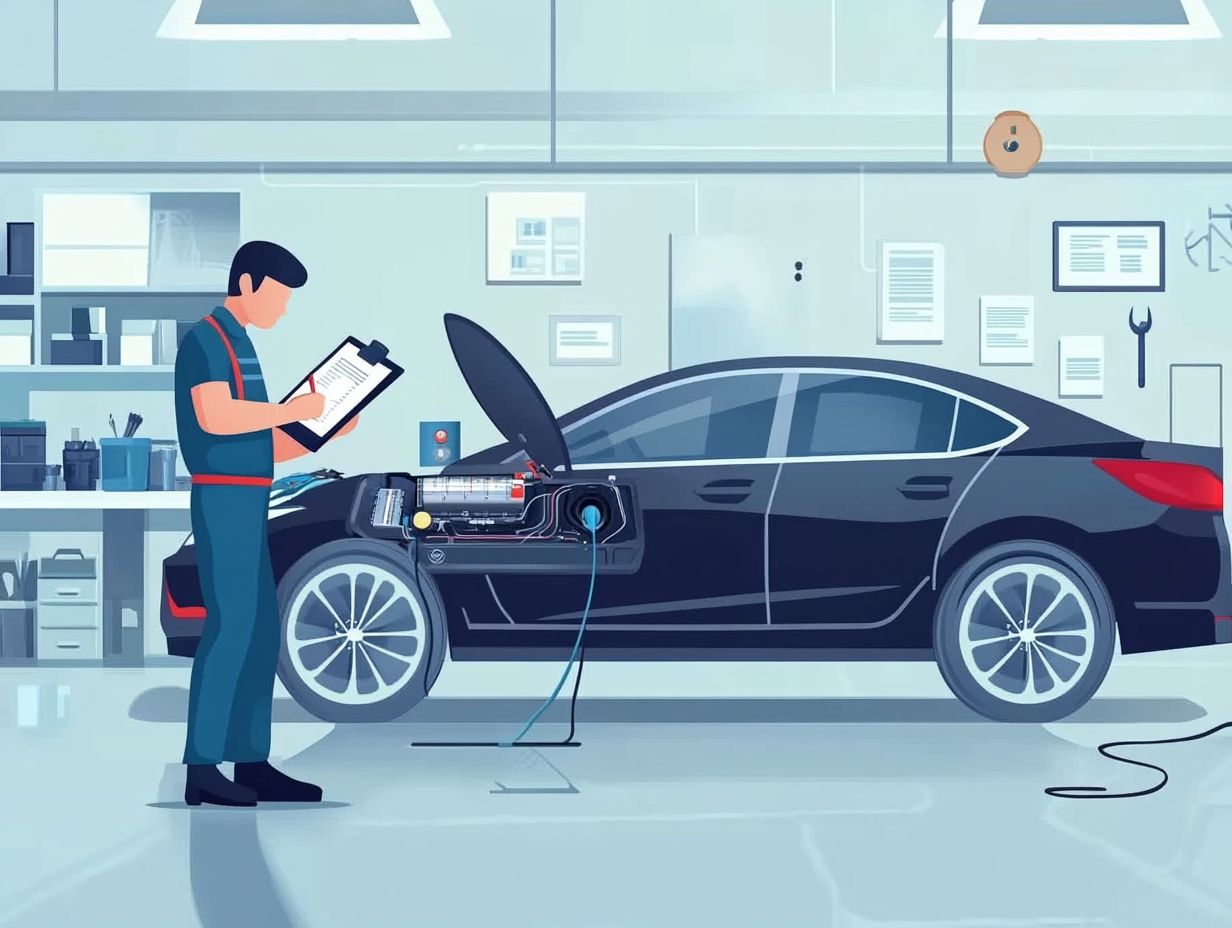
Essential EV maintenance tips involve regular check-ups and care for the vehicle to ensure its optimal performance and longevity.
Why is regular maintenance important for EVs?
Regular maintenance is important for EVs to ensure their safety, efficiency, and longevity. It also helps identify potential issues before they become major problems.
What are some common EV maintenance tasks?
- Checking and rotating tires
- Replacing brake pads
- Checking and replacing the battery
- Regular fluid checks and changes
How often should I take my EV for maintenance?
The frequency of maintenance depends on the specific make and model of your EV. It s generally recommended to follow the manufacturer s schedule, usually every 5,000-10,000 miles or once a year.
Can I perform EV maintenance myself?
While some basic maintenance tasks can be performed by the owner, it is recommended to have a trained technician handle more complex maintenance and repairs to ensure the safety and proper functioning of the vehicle.
Are there any special maintenance requirements for EVs?
Yes, EVs require specific maintenance tasks such as checking and maintaining the battery’s charge, keeping the charging port clean, and regularly updating the vehicle’s software. It’s also crucial to follow the manufacturer’s guidelines for proper charging and storage of the battery.

